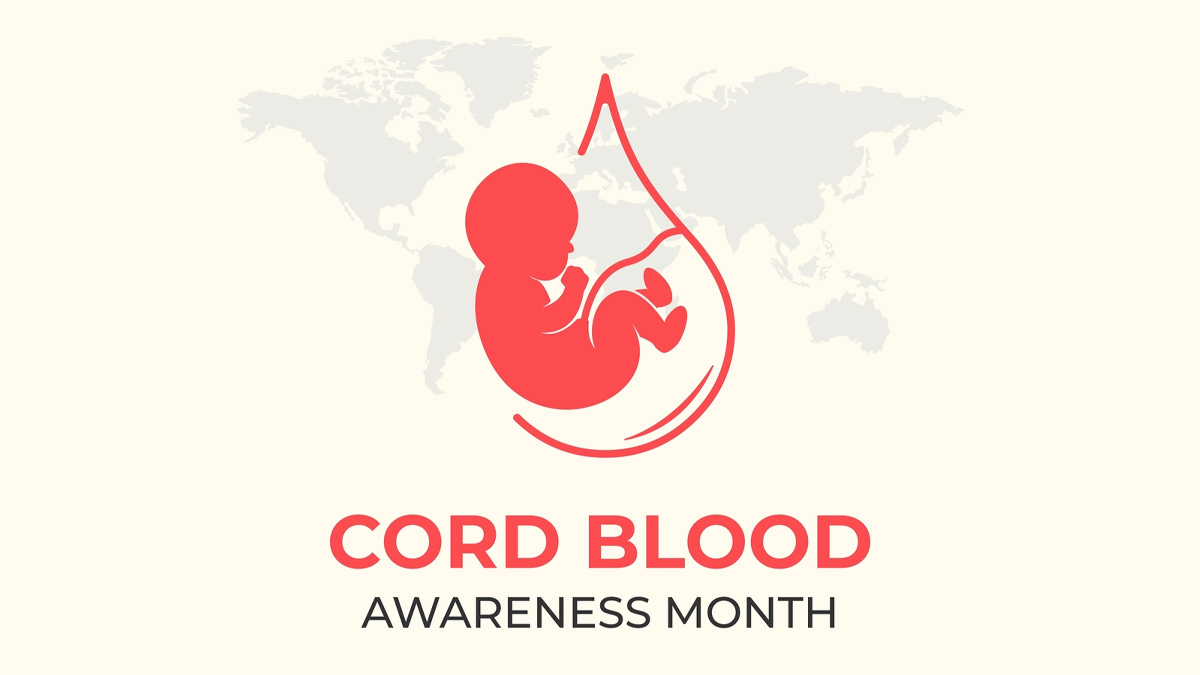
Cord blood, collected from the umbilical cord and placenta right after a healthy baby is born, is a remarkable resource rich in hematopoietic stem cells. These unique cells can develop into various types of blood cells, providing immense potential for treating various diseases. Cord Blood Awareness Month, observed every July, highlights the invaluable resource that cord blood represents in medical science and its life-saving potential. We spoke to our expert Dr Kinjal Kothari, Consultant – Obstetrics and Gynaecology, Manipal Hospital, Goa, who explained cord blood and the importance of blood banking.
Table of Content:-

“Cord blood, collected from the umbilical cord right after childbirth, is a rich source of stem cells. These stem cells have the unique ability to transform into various types of cells within the body, making them a crucial asset in treating a wide range of diseases, including cancers, blood disorders, and genetic conditions,” said Dr Kothari.
According to the National Health Service (NHS), UK, stem cells are unique 'building block' cells in the body capable of developing into various cell types. Cord blood contains blood-producing stem cells that can be donated to someone in need of life-saving treatment. These stem cells can transform into the specific type of blood cell the patient's body requires, such as Red Blood Cells (RBCs), White Blood Cells (WBCs), or platelets.
The Science Behind Cord Blood Banking

“Hematopoietic stem cells found in cord blood are similar to the ones that are discovered in bone marrow but they are younger and more flexible. This property makes these cells most effective during therapies that demand the substitution of unhealthy cells like in leukaemia or bone marrow transplants,” added Dr Kothari.
Unlike bone marrow donation, recovering cord blood is not invasive and causes no pain; hence the method has zero risk of harming the mother or her offspring.
Also Read: What Is A Blood Clot? Expert Explains This Condition, Its Symptoms, Causes, And Treatment
Importance of Cord Blood Banking

Medical Applications
“In transplant medicine, these cells offer unmatched value due to their ability to regenerate and differentiate into healthy blood cells, which have been used in fighting more than 80 disorders like leukaemia, lymphoma, or sickle cell anaemia,” said Dr Kothari.
Family Health Security
Banking cord blood is a biological resource that could benefit not only the child from whom it was collected but also their siblings or other genetically compatible family members.
Future Therapeutic Potential
Physicians are looking into how cord blood can be used to treat medical problems, such as cerebral palsy, autism, and spinal cord injury. The stored stem cells may help us treat more diseases in the future as science is advancing in the field of medicine.
Also Read: Postpartum Haemorrhage: Expert Lists The Risk Factors And Effects of Blood Loss From Delivery
Public Awareness and Education
Despite its life-saving potential, awareness about cord blood banking remains relatively low among expectant parents. Educational campaigns during this awareness month aim to bridge this gap by informing parents about the process, benefits, and ethical considerations of cord blood donation and private banking options.
“Understanding the differences between public cord blood banking (where donated cord blood is made available to anyone in need) and private banking (where families store their baby's cord blood exclusively for their use) is essential for making informed decisions,” said Dr Kothari.
Bottomline
Dr Kothari concluded, “Cord Blood Awareness Month is a crucial opportunity to remind expecting parents about the importance of educating them on the potential benefits of cord blood banking. It encourages families to make informed decisions that can positively impact their health and the well-being of their loved ones in the future. As medical research continues to uncover new applications for cord blood stem cells, their value in treating diseases and improving quality of life becomes increasingly apparent.”
[Disclaimer: This article contains information provided by an expert and is for informational purposes only. Hence, we advise you to consult your own professional if you are dealing with any health issues to avoid complications.]
Also watch this video
How we keep this article up to date:
We work with experts and keep a close eye on the latest in health and wellness. Whenever there is a new research or helpful information, we update our articles with accurate and useful advice.
Current Version